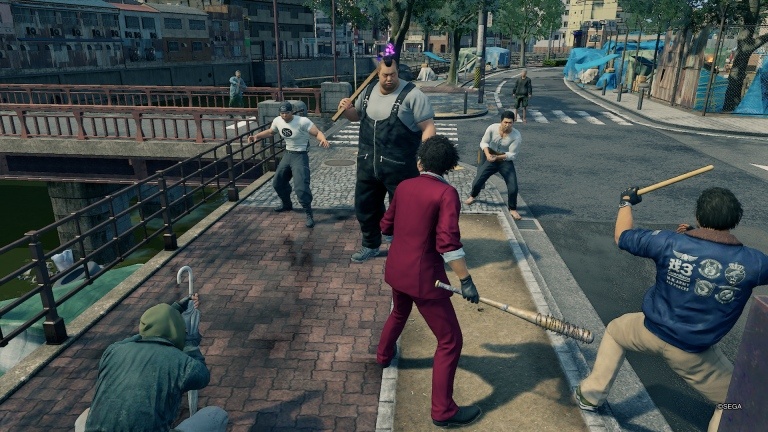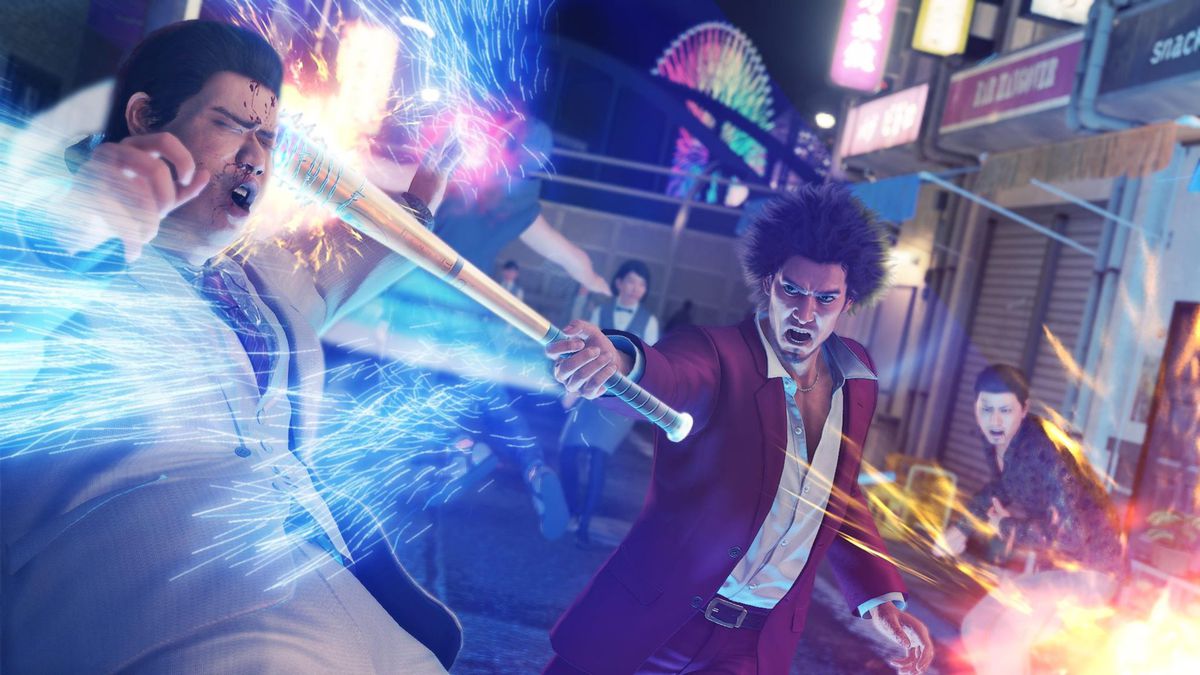Here’s how convincing the facial animation in Yakuza: Like a Dragon is: during the climactic scenes of the game, there was a moment I genuinely forgot I was playing a video game and thought I was watching real people enact a drama. That says a lot about the quality of the graphics, but it also speaks volumes about the degree of human warmth and emotion Ryu Ga Gotoku Studio has managed to inject into Ichiban’s inaugural journey.
After many years following the stoic travels of Kazuma Kiryu, the Yakuza series was in dire need of a shake-up. After an April Fools joke in which Ryu Ga Gotoku teased a Yakuza turn-based game, an unexpectedly positive response to that trailer prompted the developer to actually turn the next instalment in the series into a turn-based JRPG. Thus was Yakuza: Like a Dragon (named for the series’ moniker in Japan) born.

The combat in Yakuza games has always been enjoyably silly and chaotic, so this move to turn-based battling didn’t initially feel particularly well-advised. How would Yakuza keep its anarchic spirit if we couldn’t just pick up bicycles and hit our enemies with them whenever we wanted? Happily, our fears proved unfounded, as Yakuza’s combat is just as bonkers as ever in Like a Dragon.
Ichiban Kasuga is the new protagonist, and he and his motley crew of misfits and outcasts can choose from a number of hilariously apropos “jobs” (think Dragon Quest, but for real life) to dish out damage or heal up friends. The Idol job is an effective healer, while the Foreman is a beast who can deal huge amounts of punishment with a two-handed hammer. Choosing the right combination is critical if you want to succeed in battle.

Of course, this wouldn’t be a Yakuza game without a plot that is simultaneously impossibly labyrinthine and monumentally silly. Yakuza: Like a Dragon has its fair share of bizarre plot twists, but it’s executed in a way that’s both more knowingly comedic and more straightforward than its predecessors. You won’t have any trouble following the plot of this one.
The action all revolves around new boy Ichiban, who gets the unenviable task of stepping into Kiryu’s oversized loafers. Happily, he fulfils that remit with aplomb. Ichiban is confident, but he’s also goofy, overly optimistic, and friendly to everyone he meets. He’s no fool, but his relentlessly positive attitude still gets him into trouble; it’s just that he effortlessly manages to charm so many people in the game’s new hub of Yokohama that he’s always got reliable friends he can fall back on.
If you love the previous Yakuza games but you’re undecided on Like a Dragon, give it a shot. If you’ve never played one of the games before, this is an excellent place to start. The combat gets a touch repetitive towards the end, and those without a tolerance for silliness won’t find much to love, but Ichiban’s journey is infectious; it’s surprisingly well-written, heartfelt, and great fun to play through.















